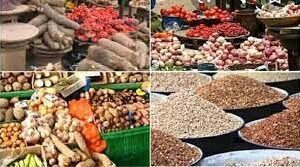The Paris convention held 2015, has set aside some goals that need to be achieved by 2030 for sustainable development of the world, and referred to as sustainable development goals (SDG). These goals were seventeen in number, as described by the conveners of the convention. The second goal is directly related to the agricultural production, which is to end hunger, achieve food security and improve nutrition and promote sustainable agriculture.
Nigeria as part of the signatories of the convention therefore must employ ways for achieving SDG targets within the stipulated time. However, it seems our various government are not even bother to look at these target, not to talk about setting some measure on ground for appropriate implementation. There are a lot to be done in this country so as to achieve their targets.
Firstly, there is the need for the governments at all levels to pump a lot of money into agriculture. Recently there was the anchor borrower programme, where the Federal Government gave loans to the farmers through the Central Bank. This programme needs to be strengthened and expanded to cover the local peasant farmers. It is widely agreed that majority of the farm produce found in the local markets across the globe is produced by the local farmers. Therefore, ensuring access to enough capital by the local farmers will not only ensure food availability, but will also reduce poverty level in the rural areas. Loans should be given to farmers through other banks, including microfinance banks, because of their closeness to the local farmers.
Secondly, more irrigation schemes need to be established across the country. This ensures food availability all the year round in the country. Take Kadawa irrigation scheme in Kano, for example. The farmers in Kadawa now can produce three set of crops per year instead of only one for rainy season. And Nigeria is blessed with many dams that are under-utilized, especially in the Northern part of the country. More dams should also be constructed in other places. This is another way of reducing hunger as well as reducing the poverty levels in the rural areas.
Thirdly, The Federal government should come up with a sustainable policy on livestock production. Let there be ministry of livestock, which will verse the production of all the livestock animals such as cattle, sheep, goats, poultry and fishery. In line with this more grazing reserve should be established which will consequently lead to the abolition of the old nomadic systems. If many counties have different ministries for livestock production; why not Nigeria? This will leads to the production of more livestock animals to that will meet the nation requirement for protein. Rural farmers should also be encouraged to be raising farm animals for their benefits. Apart from source of income to the rural farmers, they can also be a source of manure, which is more beneficial in terms of soil sustainability, when compared to the chemical fertilizers.
Farmers should also be encourage to grow and rear more local crops and animals This is because indigenous crops and animals will be managed properly by the local farmers, since they may not need large capital or some technical knowhow.
Inusa Ahmed Kabo,
Zaria.



